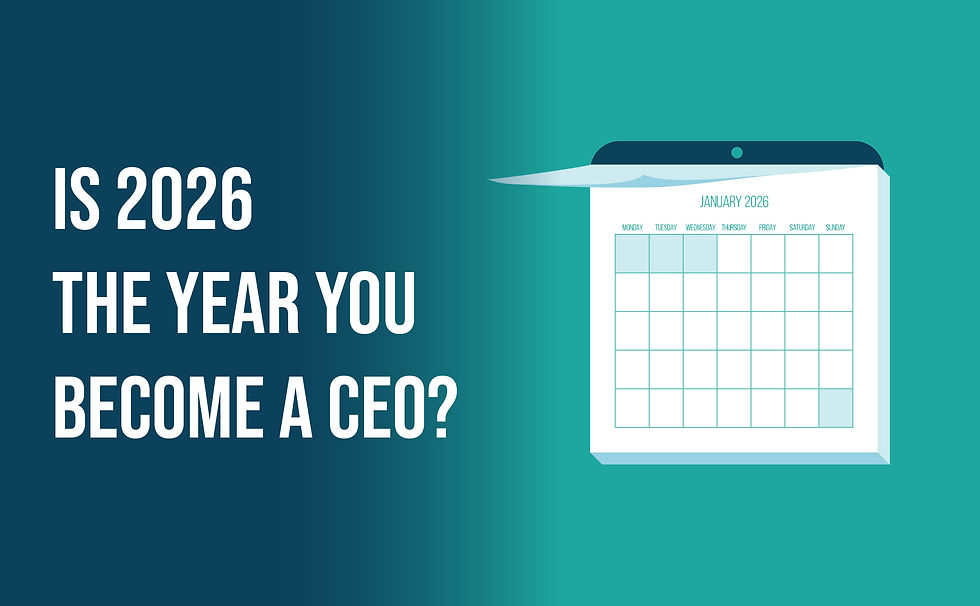DO YOU KNOW HOW EXECUTIVE SEARCH PARTNERS FIND THE RIGHT CANDIDATES?
- Jul 13, 2022
- 3 min read
Updated: Mar 30, 2023

Want to know what really goes on during an executive search? Executive Interview Coaching’s Richard Elstone can tell you a thing or two.
With over 30 years’ executive search experience, Richard has acted as a trusted advisor to Boards, CEOs and their executive teams in their search for hiring the very best talent across ASX listed, Private Equity backed and Private companies across Australia.
While he’s not one to kiss and tell, Richard agreed to share a few insider secrets about how executive search partners find the right candidate for the role.
Secret #1: First impressions really do count
How many candidates make it through to the interview stage? The truth is, it’s a very small percentage.
“Typically, a search partner would connect with their network and with their colleagues’ networks, and then their research department would identify a further one to two hundred possible candidates,” said Richard. “Occasionally, if we felt we didn’t have enough, we would then advertise the role.”
“So, while hundreds of candidates are being considered in a search process, only about 10 – 15 people will be interviewed. Not many people are aware of that.”
Richard said one of the most important ways to maximise your chances of progressing to the interview phase is to get your resume right.
“At the executive level, the competition is fierce,” he said. “Your resume needs to cut through and get noticed. The 10 – 15 people who will be interviewed are the ones with a resume that piques mine or my colleagues’ interest.”
Secret #2: It pays to develop long-term relationships with search consultants
Search consultants rely heavily on their network when sourcing the perfect candidate for a role, which is why it pays to build ongoing relationships with them.
“The longer we all do search, the deeper and longer our relationships are,” said Richard. “At the end of the day, today’s candidates are tomorrow’s clients and today’s clients are tomorrow’s candidates.”
“A lot of people make a big mistake with not developing relationships with a search consultant – they’ll only deal with them when they’re looking for a job,” said Richard.
“There’s a unique opportunity to develop relationships with people whom you trust, and who get to know you well when you get them to help build out your teams.”
Richard said often when he comes across an opportunity, he’ll routinely turn to his own network as a first port of call.
“My clients expect me to keep them abreast of opportunities as and when they come up,” said Richard. “Whilst the timing may not be right to move or the role may not be quite right, I think it’s important for my clients to know what it is I’m working on, particularly if it’s in their sector of expertise.”
Secret #3: LinkedIn is only a small part of search
If you believe headhunters just do a quick search on LinkedIn to find prospective candidates, think again.
“I would say that LinkedIn is a very useful tool, but it really only generates one to two candidates that aren’t known to the existing partners,” said Richard. “The vast majority of people who end up on the shortlist are either known to the search partner, their network or their colleagues’ networks.”
And when search partners do have a shortlist, there’s a whole lot of research that goes on behind the scenes to ensure those people are suitable for the executive role.
“I would also do a Google check on someone to ensure there are no skeletons in the closet and take a look at their publicly available social media pages, especially if they are shortlisted candidates,” said Richard.
“We wouldn’t be doing our job if we didn’t do background checks on candidates, and we encourage our clients to undertake their background checks too.”
LIKE TO PARTNER WITH RICHARD?
Executive Interview Coaching offers a range of services to maximise your chances of being appointed to your next executive opportunity. From getting your resume up to scratch to preparing you for the interview process, Richard can help you reach your career goals – now and in the future.
To get started, get in touch today!



